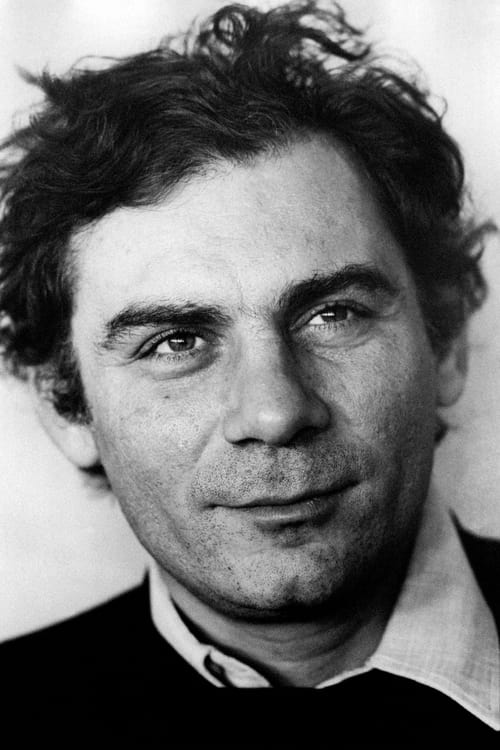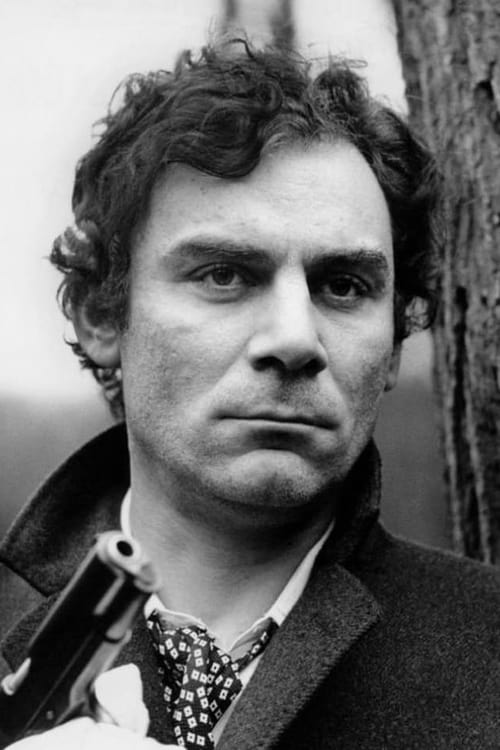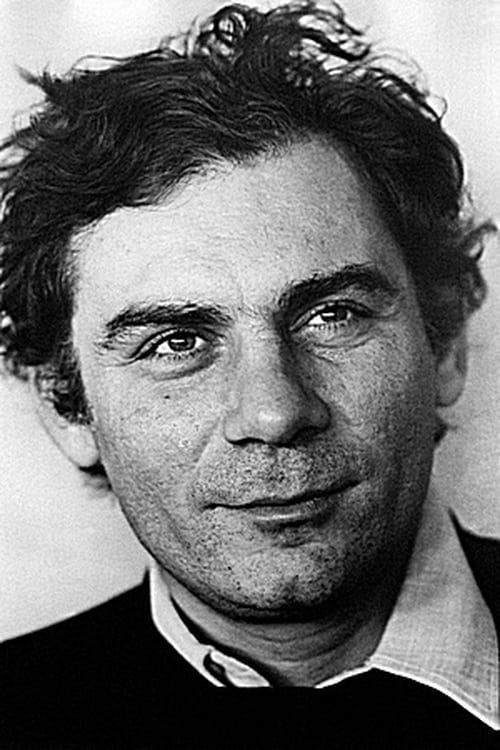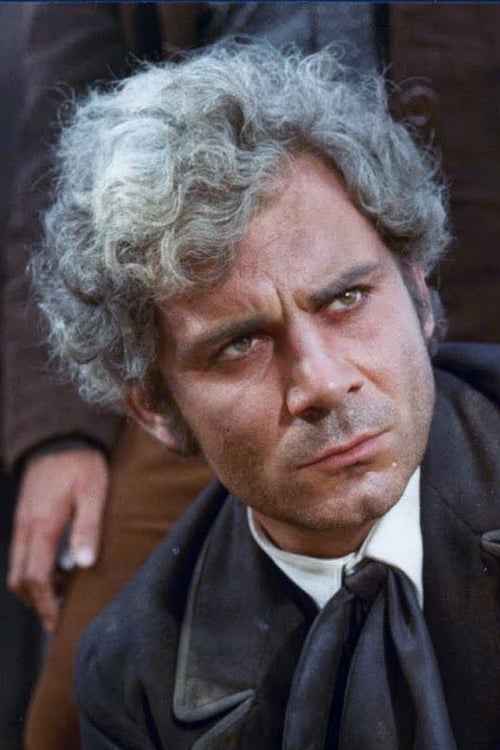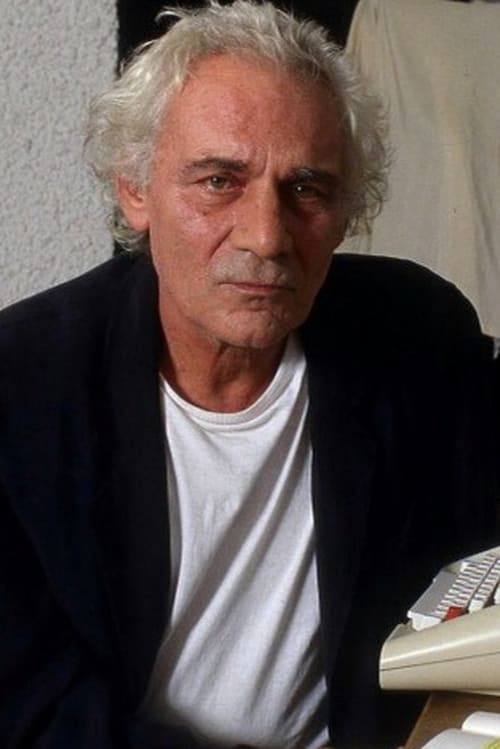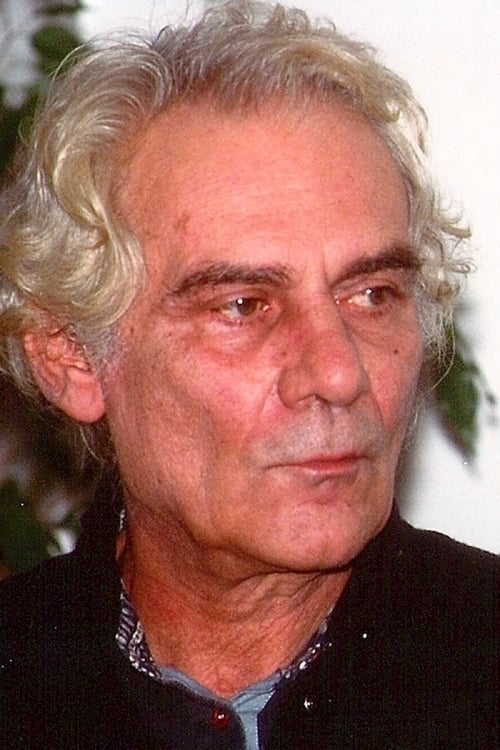
Himself
An Italian documentary about Italian cinema.

Self (archive footage)
Volonté, the militant. How many people know this singular and important aspect of the great Milanese actor's life? "Forgotten Activism" attempts to reconstruct a particular profile of the actor Gian Maria Volonté, the one concerning his political commitment, an aspect that is often neglected and ignored. A life spent on acting, but at the same time on politics, with the fixed idea of always wanting to change things and have his say, denouncing the abuses of power - as in the case of the anarchist Pinelli - and social inequalities. A character that can be defined to all intents and purposes as a fighter, a 'revolutionary in an actor's uniform', who exposed himself without trying to mediate his positions, sometimes extreme and as a true outsider.

The Indian (archive footage)
A vindication of the role of the technicians and artists who made spaghetti western genre possible, and a walk through the landscapes that made it possible to recreate in Spain, mainly in the desert of Almería, hundreds of adventures set in the remote American Far West.

Self (archive footage)
A portrait of the famous italian actor and political activist Gian Maria Volonté.
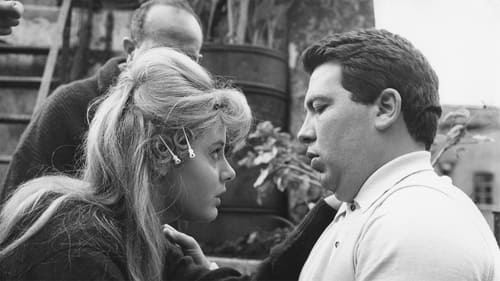
Self (archive footage)
A documentary on the director’s career, featuring interviews with friends, collaborators, and filmmakers.
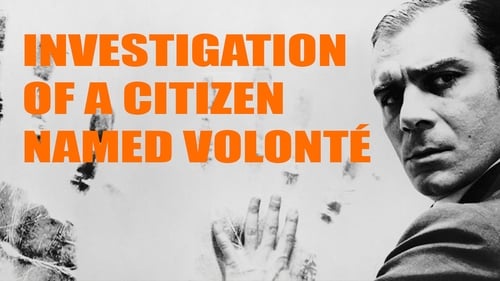
Self (archive footage)
Documentary on actor Gian Maria Volonté
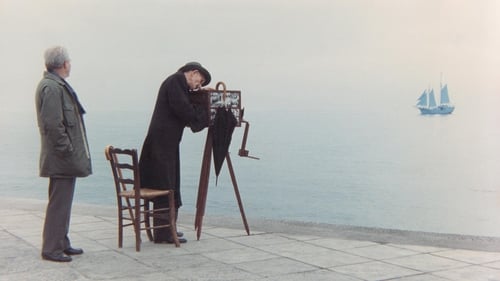
In Memory Of
"A," a Greek filmmaker living in exile in the United States, returns to his native Ptolemas to attend a special screening of one of his extremely controversial films. But A's real interest lies elsewhere--the mythical reels of the very first film shot by the Manakia brothers, who, at the dawn of the age of cinema, tirelessly criss-crossed the Balkans and, without regard for national and ethnic strife, recorded the region's history and customs. Did these primitive, never-developed images really exist?

Tirano Banderas
In Santa Fe de Tierra Firme, an imaginary Latin American country, the indigenous dictator Santos Banderas rules with an iron fist. A group of rebels trying to seize power by force while some liberals try a change of government legally.

El tano Bérgami
A group of musicians, prostitutes, gamblers, and laborers, react to the arrival of a tango pianist at a saloon.
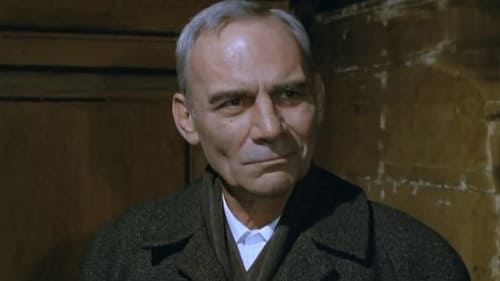
Carmelo Franzò
After many years, a retired diplomat returns to his native Sicily to visit an abandoned property and delve into family correspondence. But is it worth bringing up the past? A difficult Sicilian history against the backdrop of the mafia and drugs.
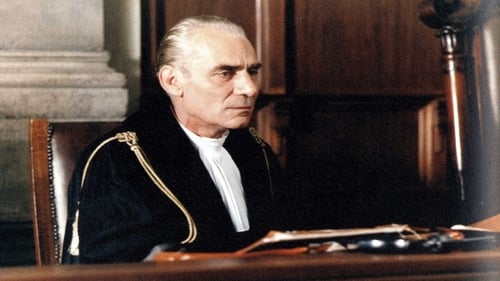
Giudice Vito Di Francesco
Tommaso Scalia is a man who commits three murders: he kills his superior who sacked him, the man who replaced him and his wife. He wants a quick trial and an early execution, but an earnest, principled assistant judge looks for a way to save the murderer from being shot, because he does not belive in capital punishment.
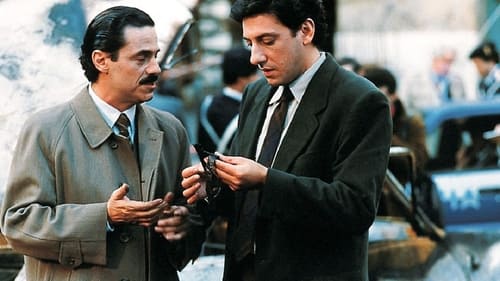
Alberto Landolfi
Chronicle of the dark maneuvers put into practice by a politician to seize an opposition newspaper. A Lebanese terrorist receives the order to kill a stockbroker, which triggers a series of blackmail and deception. A deputy commissioner and a journalist intend to shed light on all these murky matters, but the politician has no scruples and also knows how to move with extraordinary skill.
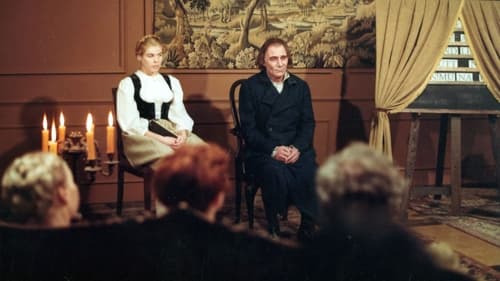
Pestalozzi
In the 1770s, Swiss farmer Johann Heinrich Pestalozzi established a school for poor orphaned children in the Aargau. Up to total exhaustion he sacrificed himself for his pedagogical theories. Five years later, the project of the idealistic educator failed after bloody attacks of the French. In retrospect, the disappointed Pestalozzi experiences the last few months with "his" children.
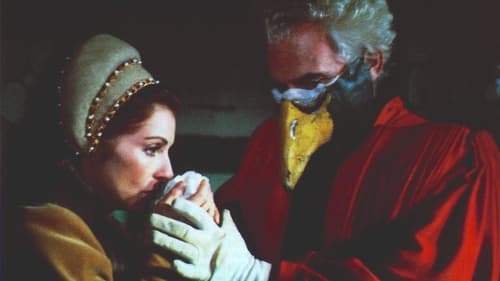
Zenone
The Inquisition is in full swing in 16th century Flanders. Wanted for his dissident writings, the alchemist doctor Zeno has been wandering Europe under an assumed name for twenty years. But he remains a non-conformist. He returns to his native Bruges, where he thinks he has been forgotten. In this silent labyrinth where the faces of the past resurface, he rediscovers his identity and thus signs his death warrant.
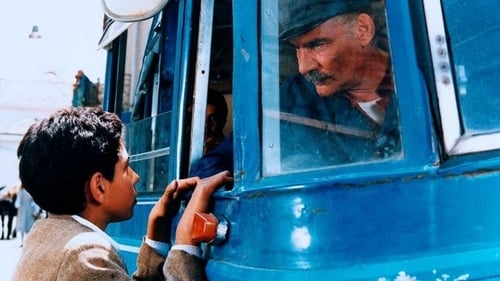
Felice
Set in 1960, the year of the Rome Olympics, a 13 year-old boy with aspirations to become an athlete befriends an ageing, disabled bus driver who understands his ambitions.
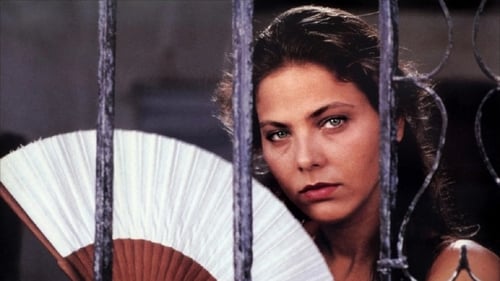
Dr. Cristo Bedoya
This suspenseful Italian crime drama is set in a Colombian river town and chronicles the series of events that led up to murder. Based on a novel by distinguished author Gabriel Garcia Marquez, the tale begins in the present as a middle-aged doctor returns to the village after a twenty-year absence to investigate the murder that occurred just before he left.
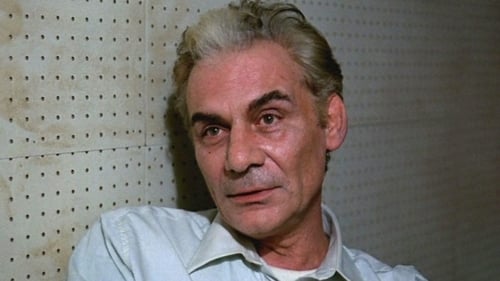
Aldo Moro
On March 16, 1978, far-left terrorists of the Red Brigades kidnap Aldo Moro, leader of the Christian Democracy, the ruling party in Italy since the end of WWII. 55 days later, his body will be found in the trunk of a car. This is a neutral and factual account of what happened in between.
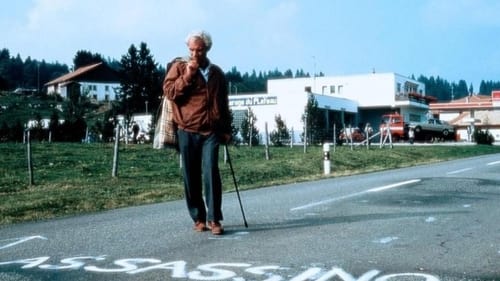
Bernard Fontana
A TV reporter and his assisstant go to a small Swiss village to do a programme with a reclusive scientist, an expert on world food shortages. During this time, an Italian immigrant worker is killed in a road crash and the reporter becomes involved in uncovering the truth about his death.
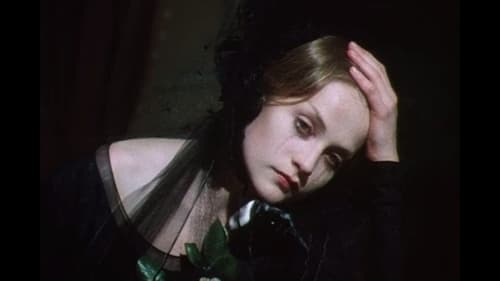
Plessis
A young girl from the provinces, comes to Paris with one goal: to become a part of the rich bourgeoisie. To achieve this she will use her unique beauty and charm.
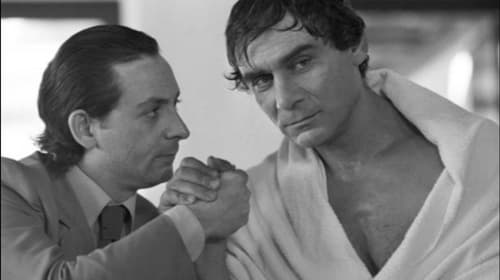
Writer
Armenia Balducci's film, featuring Gian Maria Volontè as Stark, a cop-movie actor that falls prey to paranoia because he fears his latest movie will be a failure.

Stark
Armenia Balducci's film, featuring Gian Maria Volontè as Stark, a cop-movie actor that falls prey to paranoia because he fears his latest movie will be a failure.
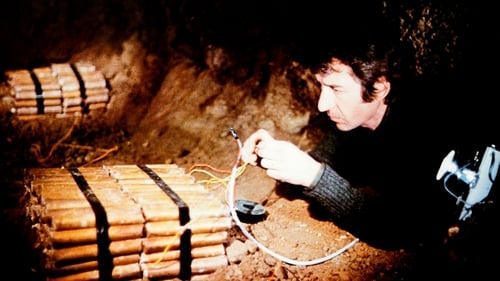
Izarra
Spain, 1973. Dictator Francisco Franco has ruled the country since 1939 with an iron fist; but he is now a very old and sick man. The future of the weakened regime is in danger. Admiral Carrero Blanco is his natural successor. The Basque terrorist gang ETA decides that he must die to prevent the dictatorship from continuing.
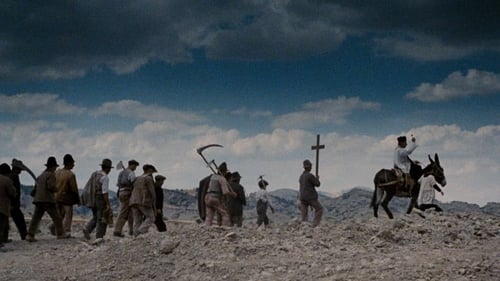
Carlo Levi
In the fascist Italy of 1935, a painter trained as a doctor is exiled to a remote region near Eboli. Over time, he learns to appreciate the beauty and wisdom of the peasants, and to overcome his isolation.

Interviewee
This documentary addresses the challenges facing the Italian film industry in 1978 by focusing on the television productions of Francesco Rosi's CHRIST STOPPED AT EBOLI (1979) and Elio Petri's LE MANI SPORCHE (1978)
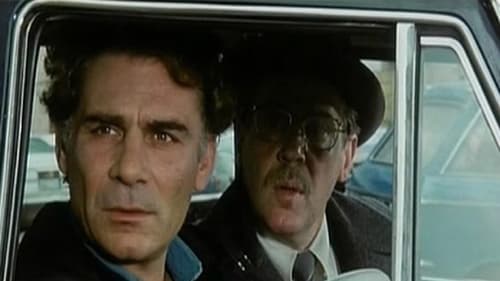
Brigadiere Ludovico Graziano
During a wave of political violence in Italy, a policeman who's already survived an assassination is assigned to act as a bodyguard to a morally upright judge. He feels increasingly fearful as the links of the upper echelons of police and government to the violence become clear.
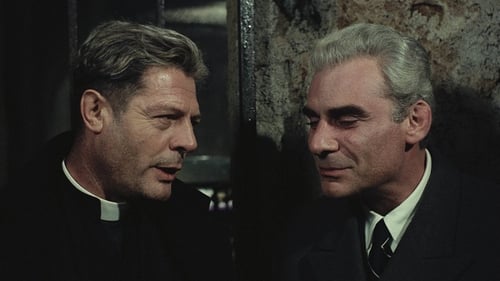
M.
Set during a retreat of Christian Democrat politicians who practice spiritual exercises together, it is an allegory of corrupted power. Disturbing, claustrophobic settings are the background to a series of mysterious crimes.
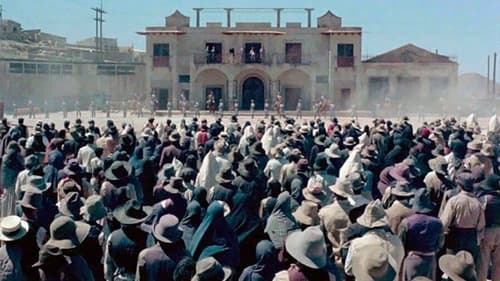
Gregorio
Chronicle of the repression that a foreign company exerts on the miners of a small nitrate town in Chile, whose workers decide to claim their most essential rights. A reflection of the historic union struggles in the northern Chile that ended with terrible repressive acts.

Emilio
Fascism has forced the leadership of the Italian Communist Party to settle in Paris. In Italy arrests of militants are decimating the organization, so Emilio is sent on a mission in the area of Turin, to put out of harm whistleblowers.
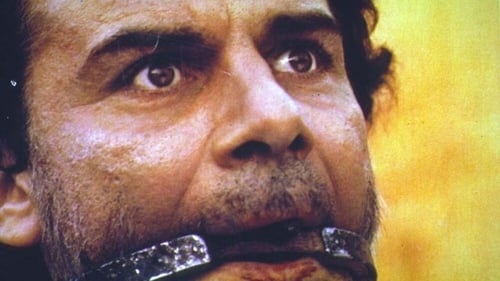
Giordano Bruno
Fleeing from his enemies in the Catholic Church, the free thinking philosopher, poet and scientist Giordano Bruno has found some protection in Venice. But the Roman Inquisition, fearing his influence in Europe, wants to bring him on trial for 'heresy'.
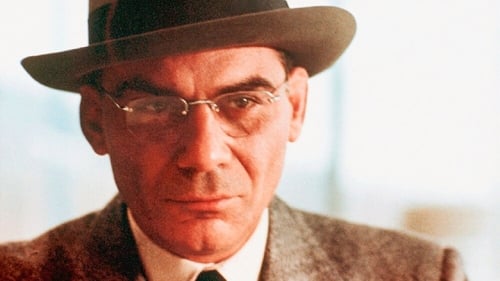
Charles 'Lucky' Luciano
Lucky Luciano is one of the bosses of the Mafia. He orders the slaughter of 40 other responsibles, therefore becoming the only boss. But a few years later he is put into jail. In 1946, he got a pardon and is sent back to Sicilia. There, he begins becoming one of the chief of the Mafia. The US Army seems to refrain from interfering.

Director
The film retraces the events of the Reggio Calabria revolt and reconstructs, with images of the protagonists and places, the atmosphere of those tragic days in the early 1970s.
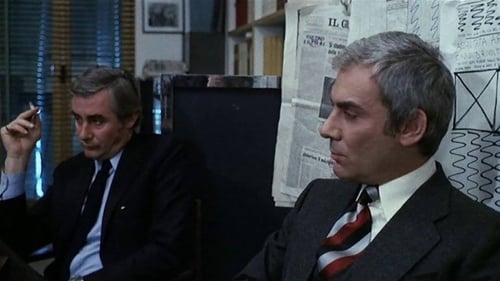
The Managing Editor of 'Il Giornale'
1972, Milan. Just a few days before the general elections, a young girl from an esteemed family is raped and murdered. Bizanti, editor-in-chief of a conservative newspaper, tries to derail the official police investigation in order to help the right-wing candidates supported by his boss to win the elections.
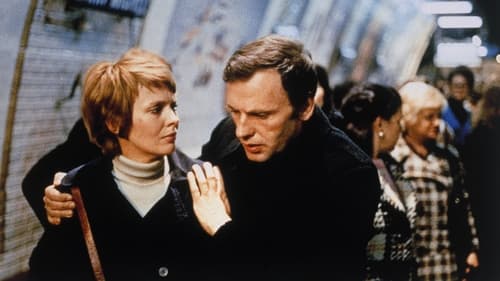
Sadiel
Sadiel, rebel leader in a North African state, takes refuge in Switzerland in the aftermath of a coup. Aware of the threat posed by Sadiel, the ruthless Colonel Kassar contacts the French security services to help in capturing the political activist. A police informer, Darien, is forced to lure Sadiel to Paris, allegedly to make a television coverage about the Third World. Arriving in Paris, Sadiel is captured and delivered to his opponents. Disgusted by the way he has been manipulated, Darien tries to turn back the clock, unknowing who’s dealing with.

Self (voice) (uncredited)
The film recounts the struggle of the factory workers of five Italian factories, Cagli, Coca Cola, Filodont, Luciani and Metalfer. A montage of interviews in which the workers denounce the hardships and difficulties of living without wages and put forward their proposals for getting out of the crisis and for change. The workers of the occupied factories decide to put up a tent in Piazza di Spagna to propagandise their struggle, but permission is denied by the Commissariat of Public Security. There are clashes with the police, who charge and use batons every time the workers try to set up the tent. Despite being injured and bruised, the workers do not give up until they get what they ask for: 'A tent in the square of Rome to remind the citizens - especially the wealthier classes - that there are workers in Rome without pay during the Christmas holidays'. In the end, the workers get what they ask for and the tent is finally raised amid applause and general satisfaction.

Director
The film recounts the struggle of the factory workers of five Italian factories, Cagli, Coca Cola, Filodont, Luciani and Metalfer. A montage of interviews in which the workers denounce the hardships and difficulties of living without wages and put forward their proposals for getting out of the crisis and for change. The workers of the occupied factories decide to put up a tent in Piazza di Spagna to propagandise their struggle, but permission is denied by the Commissariat of Public Security. There are clashes with the police, who charge and use batons every time the workers try to set up the tent. Despite being injured and bruised, the workers do not give up until they get what they ask for: 'A tent in the square of Rome to remind the citizens - especially the wealthier classes - that there are workers in Rome without pay during the Christmas holidays'. In the end, the workers get what they ask for and the tent is finally raised amid applause and general satisfaction.
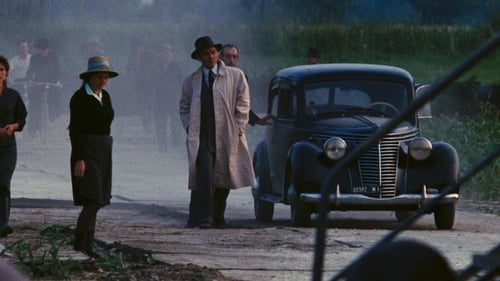
Enrico Mattei
Enrico Mattei helped change Italy’s future, first as freedom-fighter against the Nazis, then as an investor in methane gas through a public company, A.G.I.P., and ultimately as the head of ENI, a state body formed for the development of oil resources. On October 27, 1962, he died when his private airplane crashed during a flight to Milan. Officially, it is declared an accident, but many journalists explore other plausible reasons for Mattei's untimely death.
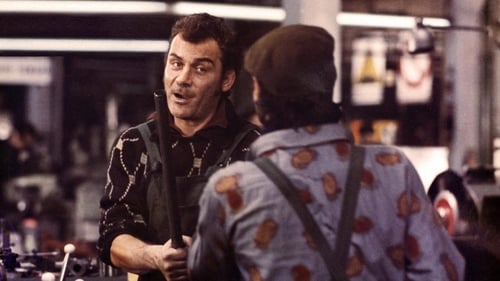
Lulù Massa
A conscientious factory worker gets his finger cut off by a machine. The accident causes him to become more involved in political and revolutionary groups.
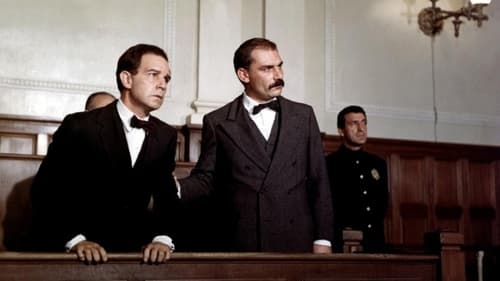
Bartolomeo Vanzetti
Boston, 1920. Italian immigrants Nicola Sacco and Bartolomeo Vanzetti are charged and unfairly tried for murder on the basis of their anarchic political convictions.

Vogel
When French criminal Corey gets released from prison, he resolves to never return. He is quickly pulled back into the underworld, however, after a chance encounter with escaped murderer Vogel. Along with former policeman and current alcoholic Jansen, they plot an intricate jewel heist. All the while, quirky Police Commissioner Mattei, who was the one to lose custody of Vogel, is determined to find him.

Dottore
Rome, Italy. After committing a heinous crime, a senior police officer exposes evidence incriminating him because his moral commitment prevents him from circumventing the law and the social order it protects.
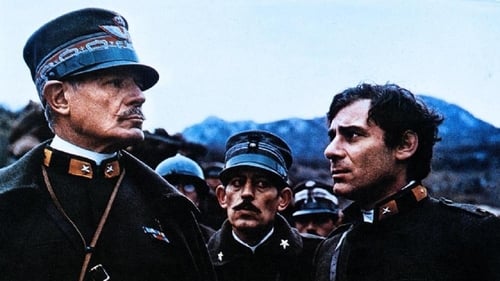
Lt. Ottolenghi
Time after time, soldiers of the Italian Army are forced to leave their mountain trenches in attempts to storm an enemy fortress, always with the same disastrous results. As casualties mount, indignation spreads among the rank and file. Disturbed by his superiors' decisions, Lieutenant Sassu is led to question the purpose of war and reconsider where his real duties lie.

Le ranger nordiste
A politically oriented film in which images suggestive of a mock western are accompanied by an attack on all cinematic conventions to date and a debate on the nature and possibility of revolutionary cinema.

After a wave of arrests in 1969, Italian anarchist Giuseppe Pinelli allegedly falls out of a police building window while being interrogated. The circumstances leading to his death are re-enacted in three hypothetical versions in this attempt at counter-investigation.

Self / Reenactor (uncredited)
The film examines the death of the anarchist Giuseppe Pinelli, who fell from the fourth floor of the police headquarters in Milan December 15, 1969, after being stopped following the Piazza Fontana bombing.

Narrator (voice)
The film documents the trade union battle of the workers of the Apollon printing house in Rome, occupied for a few months after the management decided to fire all the personnel and sell the land on which the factory was standing. In the form of a docu-fiction, the events of the long occupation are reconstructed, which began on June 4, 1967 and ended in December 1968. The workers play themselves and various other roles, but they are also co-authors of the film, which is not a simple chronicle of events, but an analytical reading of the reality of the factory, the story of the conquest of instruments of struggle and democracy, with the indication of strategies of attack on the bosses' power. The narrative voice of Gian Maria Volonté gives continuity to the story and comments on the events.
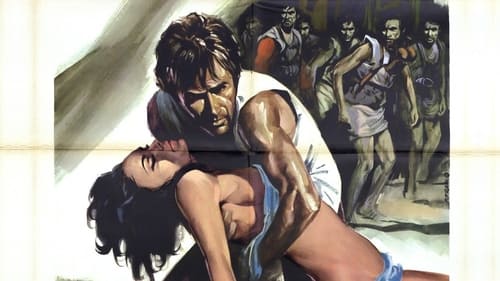
Renno
An island has been decimated by a volcanic eruption and the few survivors escape to a nearby island. Led by Rutolo, they know that their new home is equally susceptible to such a catastrophe via its own volcano, but they are unable to convince the current inhabitants of Island #2 to flee with them to a mainland.
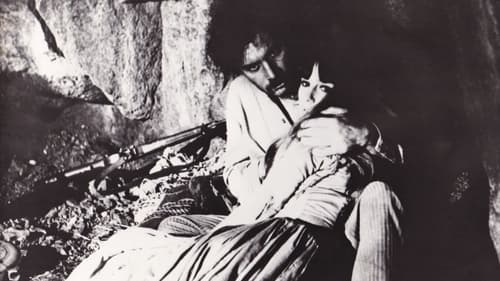
Gramigna
Sicily, 1865. Two peasants, Gramigna and his father are tricked by Baron Nardò and robbed of their field, which then the baron lets to Assunta, her daughter Gemma and her fiancé Ramarro. Determined to take revenge, Gramigna begins to hunt down Nardò's complicit mediators. Unbeknownst to Gramigna, Gemma, to escape her arranged marriage, goes after him. Love and violence will follow all till their desperate ends.

In the late 60s of the twentieth century, a wave of revolutionary sentiments spread across Europe. A newspaper correspondent tries to reflect what is happening in his notes, visiting summits in various countries, including the “iron curtain”.
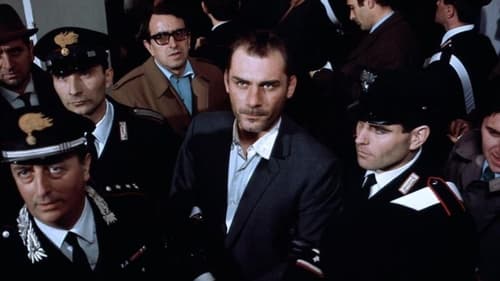
Piero Cavallero
A detective is assigned to head a manhunt for four violent bank robbers.
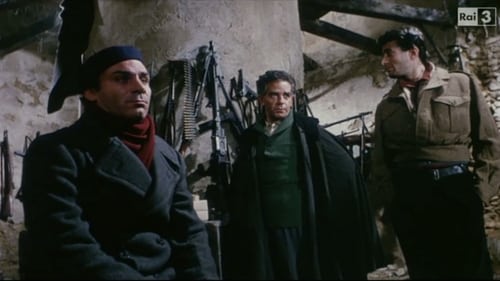
Aldo Cervi
The story of the Cervi family. Rural farmers brought up to be idealogically opposed to fascism during the era of Mussolini's rule of Italy and World War 2.

Professor Brett Fletcher
History Professor Brad Fletcher heads west for his health, but falls in with Soloman Bennett's outlaw gang. Fascinated by their way of life, Fletcher finally takes over the gang, leading with a new 'efficient' ruthlessness.
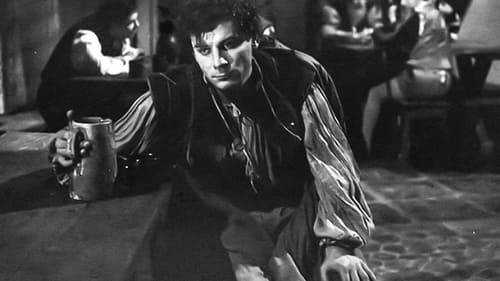
Caravaggio
A miniseries about Caravaggio's life.
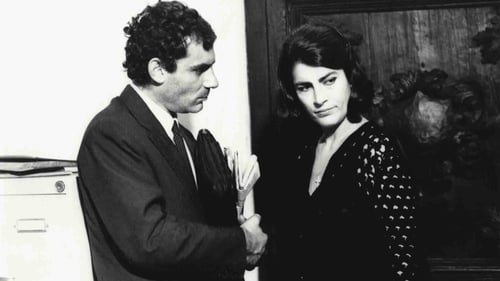
Professore Paolo Laurana
A leftist professor wants the truth about two men killed during a hunting party; but the mafia, the Church and corrupt politicians don't want him to learn it.
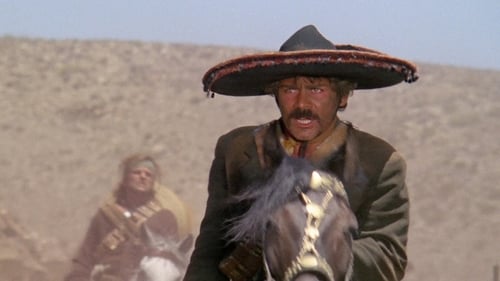
Chuncho Munos / 'El Chuncho'
El Chuncho's bandits rob arms from a train, intending to sell the weapons to Elias' revolutionaries. They are helped by one of the passengers, Bill Tate, and allow him to join them, unware he is an assassin working for the Mexican government.

Jascha Freud
A successful young writer is in search of his true destiny. Is it the life with his wife and typewriter in Amsterdam or the offers to go to the dreamworld of the Italian film city Cinecittà which is luring him? Trying to find this out he goes into retreat in the house of a befriended gay couple in the south of France.

Fabrizio
A historian goes to a castle library to translate some ancient erotic literature. While there he discovers what he believes to be supernatural forces at work.
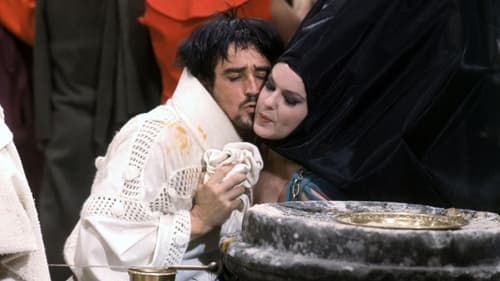
Teofilatto dei Leonzi
A group of rogues steal a scroll granting its bearer the property of the land of Aurocastro in Apulia, a province in the south of Italy. They elect a shaggy knight, Brancaleone from Norcia, as their leader, and decide to get possession of this supposedly wealthy land. Many adventures will occurr during the journey.

Inspector Moroni
A petty hoodlum pulls jewellery store heists in broad daylight. The cop on his tail knows he has accomplices and focuses on the gangster's girl friend is his attempt to catch him.

Leonardo Varzi
Vittorio is a 40-year-old journalist who reaches a mid-life crisis. His wife nags him constantly for ignoring her and their child. After his mistress dumps him, Vittorio returns to the town where he spent his childhood to reflect on the state of his life. Flashbacks are used to tell of Vittorio’s relationship with his parents as a child and the effects World War II had on his development.

El Indio
Two bounty hunters are in pursuit of "El Indio," one of the most wanted fugitives in the western territories, and his gang.

Michele
Michele, a bourgeois intellectual, adhered to fascism for years. After fighting abroad, he returns home in 1943, but is now tired and refuses to join the Republic of Salò. His comrades still want him with them, but this Social Republic, imposed by the SS arms, does not convince him. The war continues and the situation does not allow one to remain neutral.
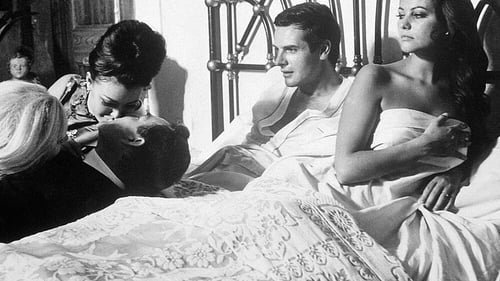
Assessore
The Magnificent Cuckold is about a hat tycoon who is ecstatically, if not hungrily, in love with his youthful wife. It is all blissful, that is, until our man, middle-aged and somewhat of a square among his blasé, upper-class friends to whom cuckoldry is a common practice, is seduced by one of them. At this point doubts and suspicions, like conscience, begin to plague him. If he could succumb to extramarital confections, why not his gorgeous mate? Quickly his love for his spouse degenerates beyond obsessive, into the realm of maniacal. He becomes madly concerned that his wife is cheating on him --even though she is not being unfaithful. When he looks at her it becomes obvious to him that she is a very attractive woman. And, all the men around her must be dying to be with her. Gnawed by jealously, he will imagine variations on nabbing her and her lover in flagrante delicto.
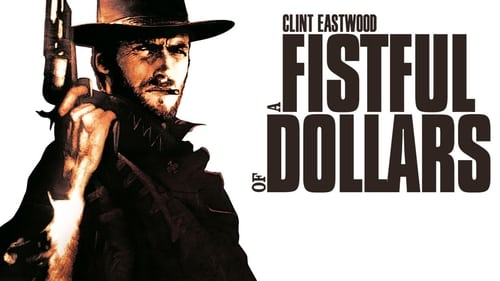
Ramón Rojo
The Man With No Name enters the Mexican village of San Miguel in the midst of a power struggle among the three Rojo brothers and sheriff John Baxter. When a regiment of Mexican soldiers bearing gold intended to pay for new weapons is waylaid by the Rojo brothers, the stranger inserts himself into the middle of the long-simmering battle, selling false information to both sides for his own benefit.
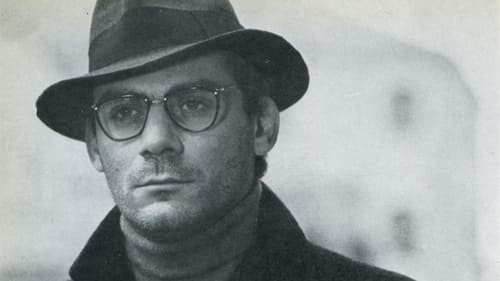
Renato Braschi , l'ingeniere
In Venice in 1943, a group of partisans led by Renato Braschi organize a series of autonomous terrorist attacks against the fascists while the National Liberation Committee urges caution. Renato is determined to carry out his ideas, risking his own life, and not only that...
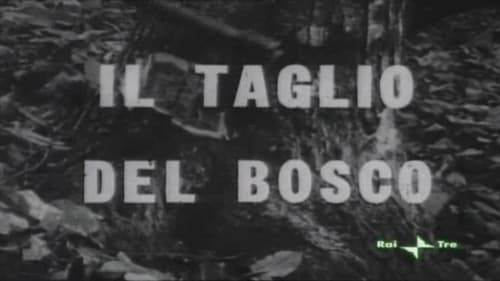
Guglielmo
With the participation of the inhabitants of Tirli (GR). RAI television film, based on a short story (1954) by Carlo Cassola and scripted by Marcello Fondato and Giuseppe Lazzari, filmed on location, aired on 19-9-1963. It is the simple story of a group of woodcutters in the Grossetano area with their problems, individual stories, small and big intimate dramas. It is a film with a Rossellini-style realist slant where, without falling into scenicism, the importance of the landscape is combined with the psychological subtlety of the characters and the lucid and critical description of their behaviour. "A phenomenological film that manages to introduce, in the objectivity of the realistic vision, a disturbing moral dimension" (G. Rondolino).

Alberto
Barcelona in the early sixties: black and white chronicle of the ups and downs in the relationship of several young couples of the Catalan bourgeoisie during the time between two Saint John's eve festivals.
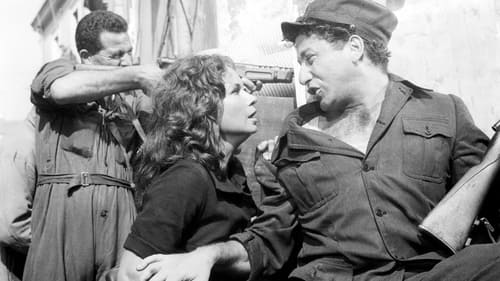
Stimolo
The four days of Naples was not a revolution. They had no leaders, no preparations of any kind. The revolt was born and flared up in a matter of hours. The whole population of Naples took part in it, but they all did so without consulting the others. Driven by a kind of necessity, the Neapolitans took up their rifles, armed themselves with stones, household objects, and bottles of petrol, and fought on their stretch of road, anonymous and silent. Once the battle was over, everyone returned to their homes and the revolt remained in memory with only the names of the dead, those, at least, who were known. One figure still remembered is that of Gennarino Capuozzo, a ten-year-old boy who was killed on a barricade while fighting against the invaders of his village.
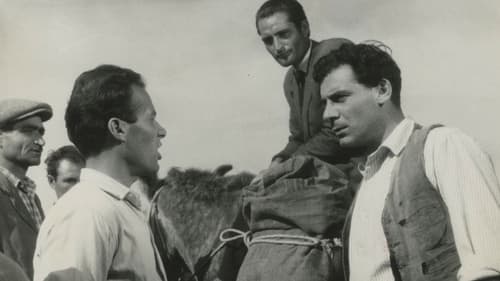
Salvatore
Political activist Salvatore returns to his native Sicily and stirs up trouble among the peasants, urging them to confront the Mafia and demand the right to plough their own fields. The peasants refuse to help him, and Salvatore is marked by the Mafia as a troublemaker.

Papaleo
Giacinto Rossi, a poor driver up to his neck in debt, is imprisoned for simulated crime. He finds himself in a cell with Tagliabue, an unscrupulous murderer; Sorcio, an elderly thief; and Papaleo, an honor-obsessed intellectual who murdered his fiancée's lover. Giacinto is forced by the three men to make a daring escape from prison.
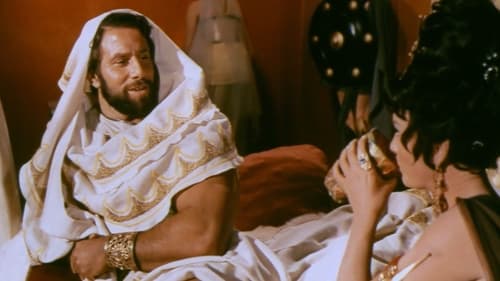
Re di Sparta
King Androcles of Thebes commands a ship in search of a threat to Greece, predicted by an atmospheric oracle. Hercules is part of the crew, but the strongman falls overboard in a thick fog. Washed ashore, he saves a young Ismene from Proteus, an evil, shape-shifting creature. Ismene takes Hercules to Atlantis, where he discovers that her mother, Queen Antinea, has captured Androcles. Hercules schemes to rescue him and thwart Antinea's dream of world conquest.
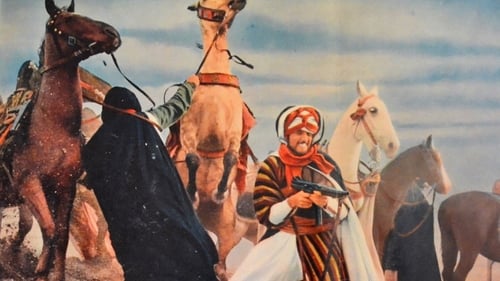
Tarath
A helicopter crashes in the desert, and the crew winds up in the underground city of Atlantis and get mixed up in a slave revolt.
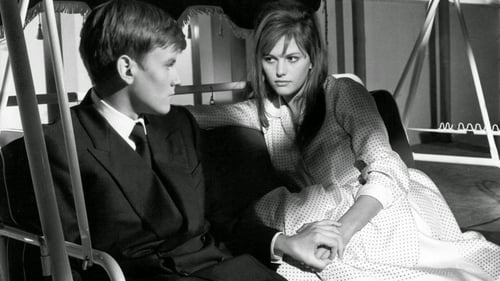
Piero Benotti
Lorenzo, who's 16 and born to a wealthy family in Parma, tries to make things right toward a showgirl, Aida, whom his older brother has mistreated. In extending kindness and standing up for her, he comes of age. But, is there anything he can do that will alter Aida's situation or her prospects?
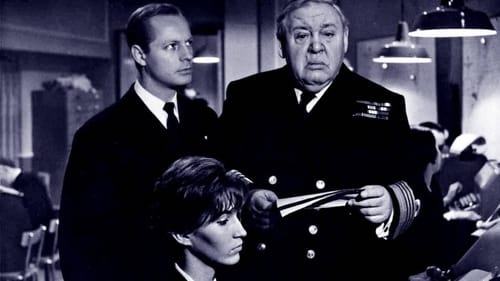
Samuel Braunstein
"Under Ten Flags" is a WWII movie loosely based on the true story of the German navy commerce raider Atlantis, a converted Auxilliary Cruiser, and her Captain Bernhard Rogge. Atlantis, camouflaged as a merchant ship, cruised the South Seas ( Atlantic, Indian & Pacific) and sank or captured 22 merchant ships from May 1940 through November 22, 1941 when she was sunk by the British Cruiser HMS Devonshire. Rogge was one of the few German officers of flag rank who were not arrested by the Allies after the war ended. This was due to the very proper and ethical way he exercised his command of Atlantis. After the war he advanced to Rear Admiral in the West German Navy and became a high-ranking NATO commander.
